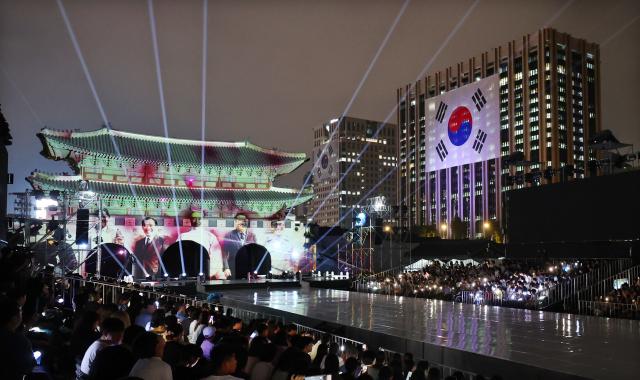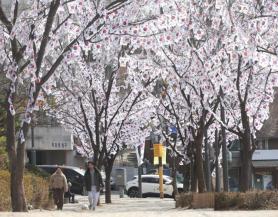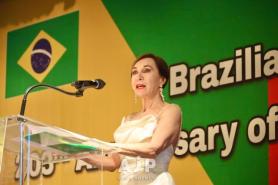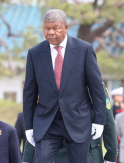
SEOUL, August 19 (AJP) - On August 15 at the Independence Hall of Korea in Cheonan, about 90 kilometers (56 miles) south of Seoul, director Kim Hyung-seok read a Liberation Day statement calling for "national unity" and an end to "history wars." The full text follows.
---
Fellow citizens. Distinguished guests present here.
Today, on the 80th anniversary of Liberation, we have gathered at the Independence Hall of Korea to once again honor the emotion of the day when this land regained its national sovereignty. Our Independence Hall preserves a Taegeukgi that President Kim Gu of the Provisional Government of the Republic of Korea entrusted in 1941 to Father Mius, who was traveling from China to the United States. Rendered into contemporary language, its content is as follows.
"Father Mius, I ask this of you. You are helping us wholeheartedly to bring us blessings, so wherever you travel this time, please deliver this message to any of our Korean compatriots you meet. If we are to escape the sorrow of a lost nation, if we are to enjoy freedom and happiness, let us devote all our energy, manpower, and resources to the Korean Liberation Army, defeat the evil forces of the world, our enemy Japan, and complete the independence of our homeland."
March 16, 1941. From Chongqing, Kim Gu.
Here we are reminded once more of the meaning of Liberation Day. Behind the independence movement of Kim Gu, whom we proudly honor, stood unnamed supporters at home and abroad who sustained the activities of the Korean Liberation Army, as well as global friends such as Father Mius of Belgium. In this sense, the liberation of the Republic of Korea is an event of world history.
On August 15, 1945, our forebears welcomed liberation. It was the day when, after 36 years under Japanese colonial rule, they overcame harsh oppression and suffering and won independence with an indomitable spirit of struggle. The nationalist historian and independence activist Jeong In-bo, who fought to protect the "spirit of the nation" during the colonial period, sang of the joy of liberation as follows. "Let us touch the soil again, even the sea dances. Elders and friends who yearned to see this day, what shall we say. This day bears the trace of forty years of hot blood, let us guard it forever, let us guard it forever."
The Republic of Korea, for which Jeong In-bo cried out "let us guard it forever," has built a nation that draws the world's attention, an economic power and a cultural powerhouse, through the Miracle on the Han River and democratization. Yet behind this proud history lurks a grave social problem, that of a Republic of conflict. In his inaugural address, President Lee Jae-myung emphasized "national unity" and declared that "national unity is the president's responsibility."
Thus, as we mark the 80th anniversary of Liberation, it goes without saying that the foremost task our society must resolve is national unity. It is also true that historical issues contribute to our divisions, including differing understandings of "liberation."
Viewed from a world-historical perspective, Korea's "liberation" was a gift gained through the victory of the Allied Powers in World War II. From this vantage point, Ham Seok-heon's "Korean History Seen Through Will," a must-read among intellectuals in the post-liberation era, explains that "liberation is rice cake given by heaven." This interpretation differs from the national-historical view that "we won liberation through victory in the anti-Japanese independence war."
Our people proclaimed themselves a "self-reliant, independent nation" through the March First Movement that drew the world's attention, and from that turning point our independence movement unfolded in diverse ways at home and abroad. The Provisional Government established in Shanghai, China, pursued diplomatic efforts for independence while carrying out armed resistance against Japan, thereby arousing international opinion.
On April 29, 1932, the 24-year-old youth Yoon Bong-gil threw a bomb at the ceremony for the Japanese Emperor's Birthday and victory commemoration held at Hongkou Park in Shanghai, shocking the international community. In the will he left to his two sons just before the deed, he wrote, "Do not grieve that you have no father, study hard and become inventors like Edison." Just as Yoon Bong-gil sacrificed his own life for the independence of the homeland while hoping his two sons would become scientists, there is diversity on the other side of history.
Liberation is not the "end of the past," it is the "responsibility to open the future." We are the people of the Republic of Korea who share five thousand years of history. There can be diverse interpretations in understanding history, but those differences must not become tools of partisan strife that divide the people. It is time to end the history wars. On that foundation, we must achieve national unity and move toward unification, the true completion of liberation. This is the mission we must affirm as we mark 80 years since liberation.
August 15, 2025
Kim Hyung-seok, Director, Independence Hall of Korea
Copyright ⓒ Aju Press All rights reserved.




